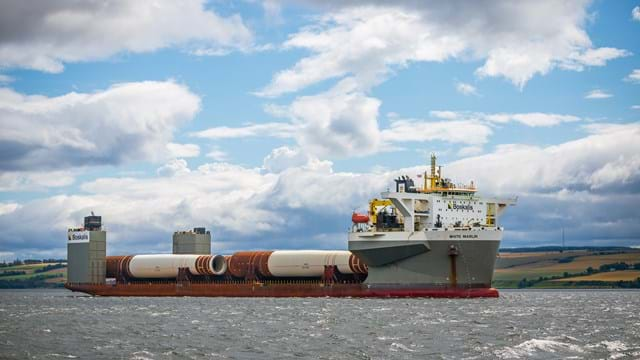Malikai is a deepwater oil discovery in offshore Sabah, Malaysia where Sabah Shell Petroleum Company is the designated Operator. A floating Dry Tree Unit (DTU) will be installed over Malikai field utilizing a Tension Leg Platform (TLP) design that suits the Malikai environment.
The 27,500 MT Malikai TLP is to be located about 110 km off the shore of Sabah (East Malaysia) in the South China Sea in water depth about 500 m. Boskalis was awarded a contract in 2014 for the provision of the Heay Transport Vessel (HTV) for loadout and float-off package of the Project which includes loadout of the Integrated Malikai TLP from MMHE fabrication Yard into HTV, Dry-transport to Johor Buoy, Float-off, Tow back and Re-delivery to TMJV at MMHE fabrication yard.
SCOPE
- Loadout, Transport and Float-off Engineering
- Design, construct and installation of grillages, skid beams and seafastening Preparation and Mobilization of White Marlin
- Ballasting of the HTV during the skidded loadout operation
- Provision of marine spread for the float off operation
- Demobilization of White Marlin and reinstatement
PROJECT CHALLENGES
Technical challenges included the ability to adapt and successfully perform:
- The discharge of the TLP offshore in Desaru instead of the original location of Johor Port;
- The loadout of the integrated TLP ballasted instead of un-ballasted prior to loadout
- The outfit of a HTV in Vietnam for the first time
NINA
The project was executed without incident. The NINA initiative was not only inculcated within the Boskalis PMT but also with key subcontractors.
CONCLUSION
The success of the project was due to the strong colaboration between all parties. The loadout oper-ation had several difficult challenges; technically and operationally. However, this was all resolved through communica-tion and the close cooperation between TMJV and Boskalis, which ensured that the TLP was still loaded in a safe, operationally sound and timely manner.
